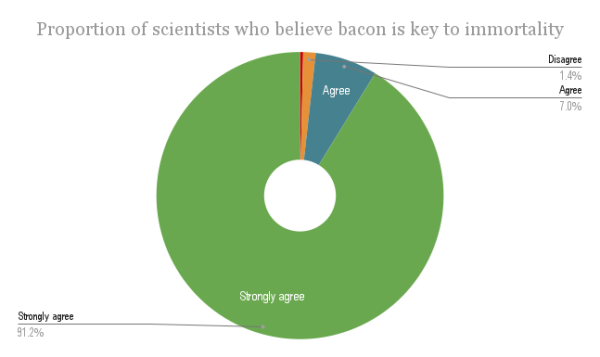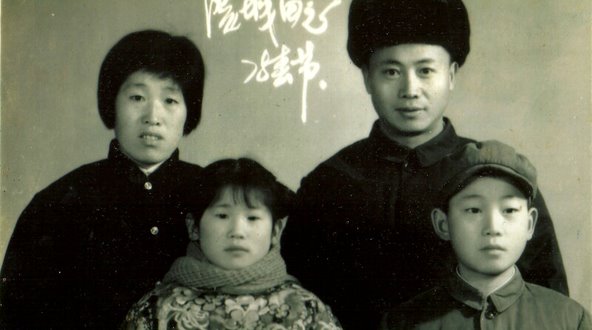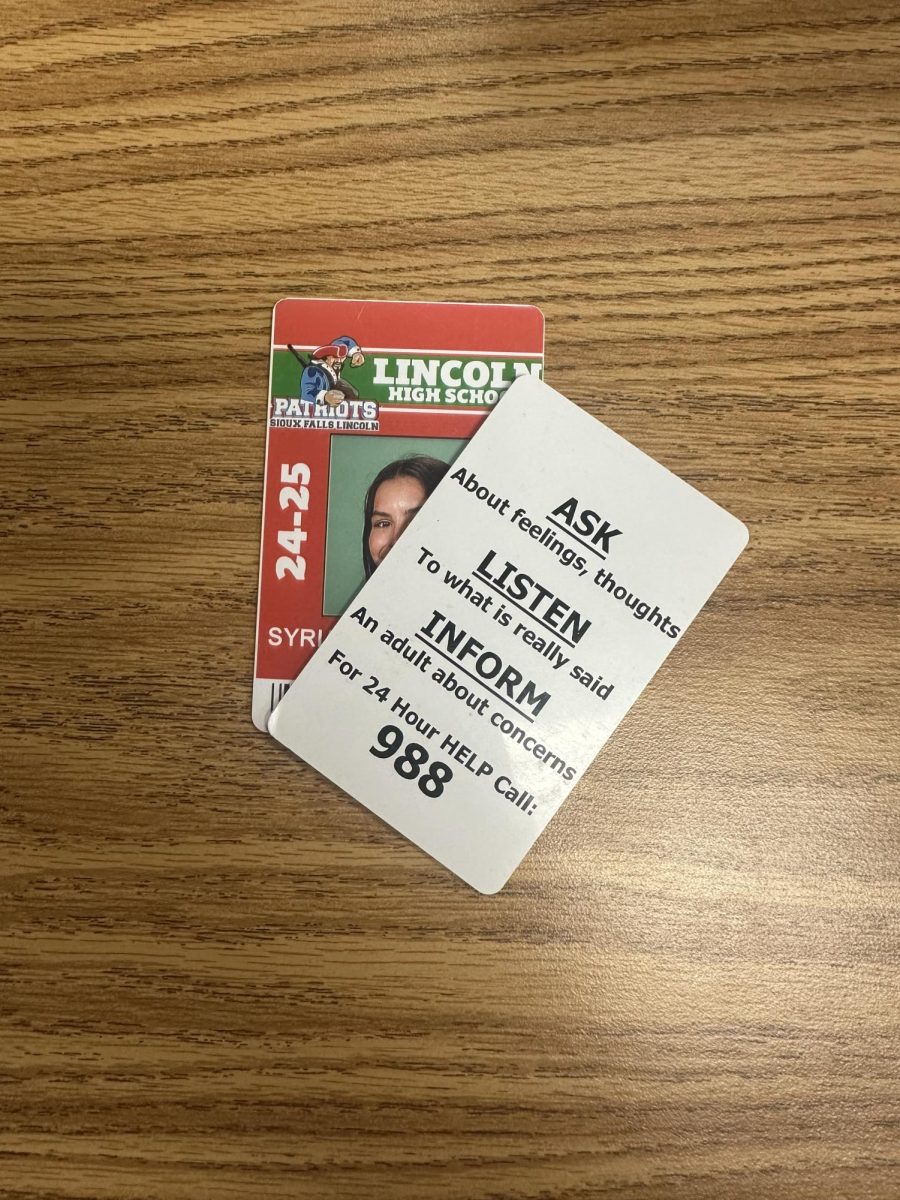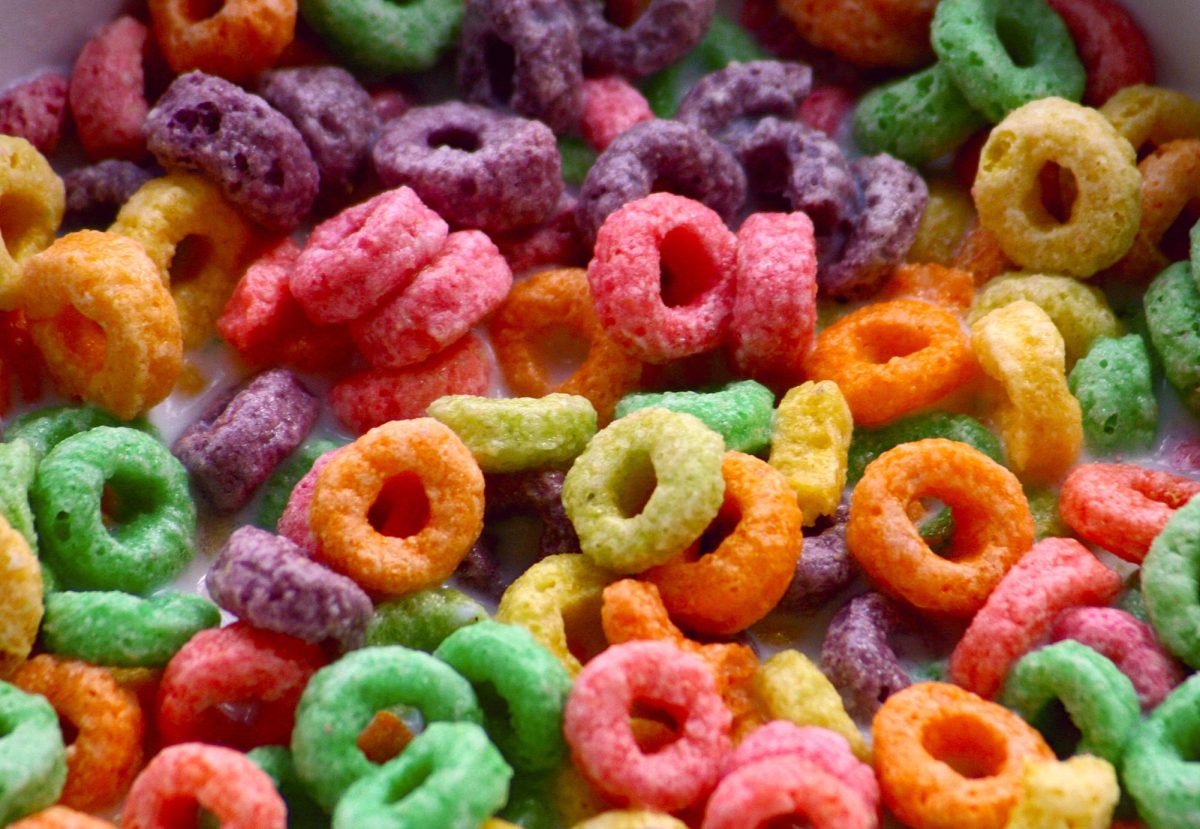Neil Armstrong was not wrong with what he said, in fact, mankind has made multiple leaps since then. From discovering numerous nebulas in space to creating cures for widespread diseases like COVID-19, humankind is a magnificent body of possibilities and intelligence. But for centuries, the one mystery we never could figure out, from 800 BC until now, is mortality. The one inescapable sickness society has fought—and failed— for so long. Luckily, scientists finally hit a crack in the ceiling and figured out a clue to achieve eternal life: bacon.
According to an Oxford University study, researchers claim that the organic compounds in bacon, such as dimethylpyrazine and ethylmethylpyrazine, repair dying cells in the human body and can accentuate regeneration. When it comes to natural deaths and cancer, scientists are looking to bacon to regenerate vital organs needed for living, like hearts, brains and much more. Researchers estimate that by 2060, actual medicinal products may include bacon components.
Additionally, another study was conducted at the National Institute of Health to see whether scientists agree that eating bacon daily can elongate life, and the results were ridiculous.
According to the NIH survey, 98% of scientists either agree or strongly agree that bacon is the key to immortality. Bacon, a simple pack that can be found in almost every store in America, is officially the fountain of youth. So maybe stop by Hy-Vee and get some bacon, because later in your years, you will be thankful you have done so. Well, except if you are vegan, pescatarian, vegetarian or any other -arian, I guess you don’t count then.

But what happens if I tell you all that I have reported, including the links above, is a lie? What would you do if bacon is not actually correlated with immortality? Because in actuality, none of this story is true, I just asked ChatGPT to generate some faux topic ideas, and based on the given lie, I wrote an entire article on bacon.
Heck, I don’t even know what dimethylpyrazine and ethylmethylpyrazine are, just some random chemical compounds I googled. It is extremely easy for a journalist or some random user to create fake topics of discussion in order to cause discourse and confusion. In fact, I can bet that probably 90% of the people who were reading this article actually believed my story without even checking the links of the research.
Journalistic integrity is not always upheld, and even though many individuals may say various responses like “I would definitely catch fake articles” or “I could never be stupid enough to believe such lies,” I would argue that no one is safe. Humans are naturally persuaded by big numbers and fancy jargon, especially when it comes from well-known and reputable sources like the NYT, BBC or even Statesman, LHS’s own school newspaper. Just know that you don’t always know the people writing behind the screen (including myself) and that you should always double-check everything you read online. Even I fall victim to this issue.
An actual study done by Stanford University doubles down on this, revealing that high schoolers are the most susceptible to misinformation due to the copious amounts of time we spend online. This obviously includes South Dakotan students as well. It is obvious that as a result, mis- and disinformation causes polarization within politics and society, and oftentimes, hate speech. With only a few written words of falsified claims, it can take down the entire unity of a country and the social fabric of society itself. What I wrote about bacon was harmless enough, but what happens if it was about foreign wars, politics or the government? That is where the harm lies.
There should be action against this silent and deadly war of misinformation, because if misinformation wins, the results would be catastrophic. Deaths would skyrocket. Peace would cease to exist. That is why I believe that SFSD schools– but preferably all schools in the U.S.— should have digital literacy classes. With approximately half of the SFSD kids considered low-income, and about 22% of low-income families not being able to access the internet, there could be many teens and middle schoolers who do not know how to treat the internet and the dangers behind it.
In addition, many states have implemented these mandatory classes, such as California and Illinois. Perhaps these classes will increase weariness on what the internet and writers say, generating more tech-educated students to battle against misinformation. But for now, high schoolers should heed the warning that not everything you see online is true.

This article is not just a story on misinformation, or a satire for bacon, but instead, a plea to current and future students at LHS and in the U.S. to be careful with what you see. Be critical and dissect further, because we are not just kids who are part of society, we are the future.


![Bacon, a common meat found in any supermarket, maybe what destroys mortality once and for all [Used with permission by Pexels]](https://lhsstatesman.com/wp-content/uploads/2024/03/unnamed-2.jpg)





